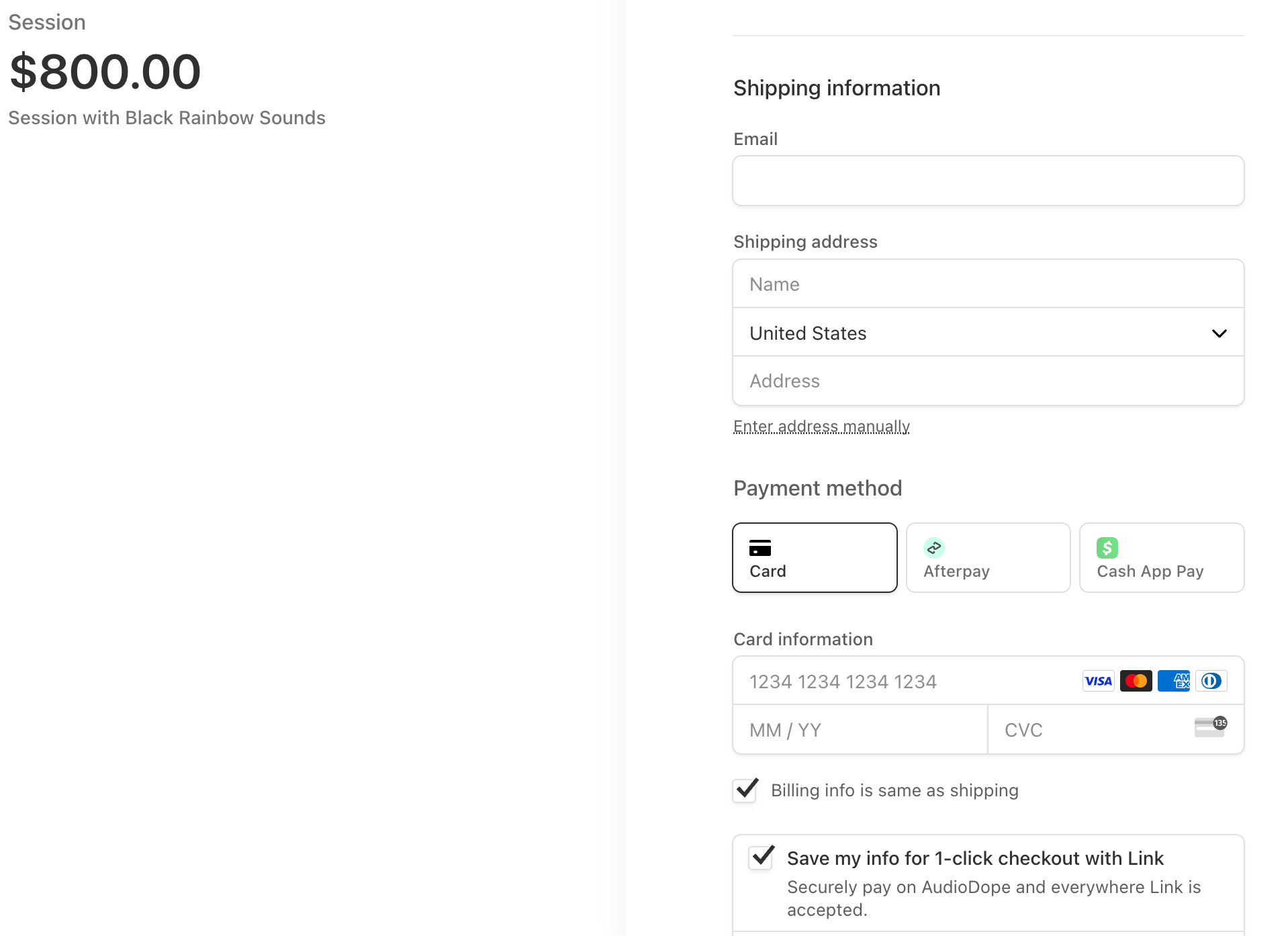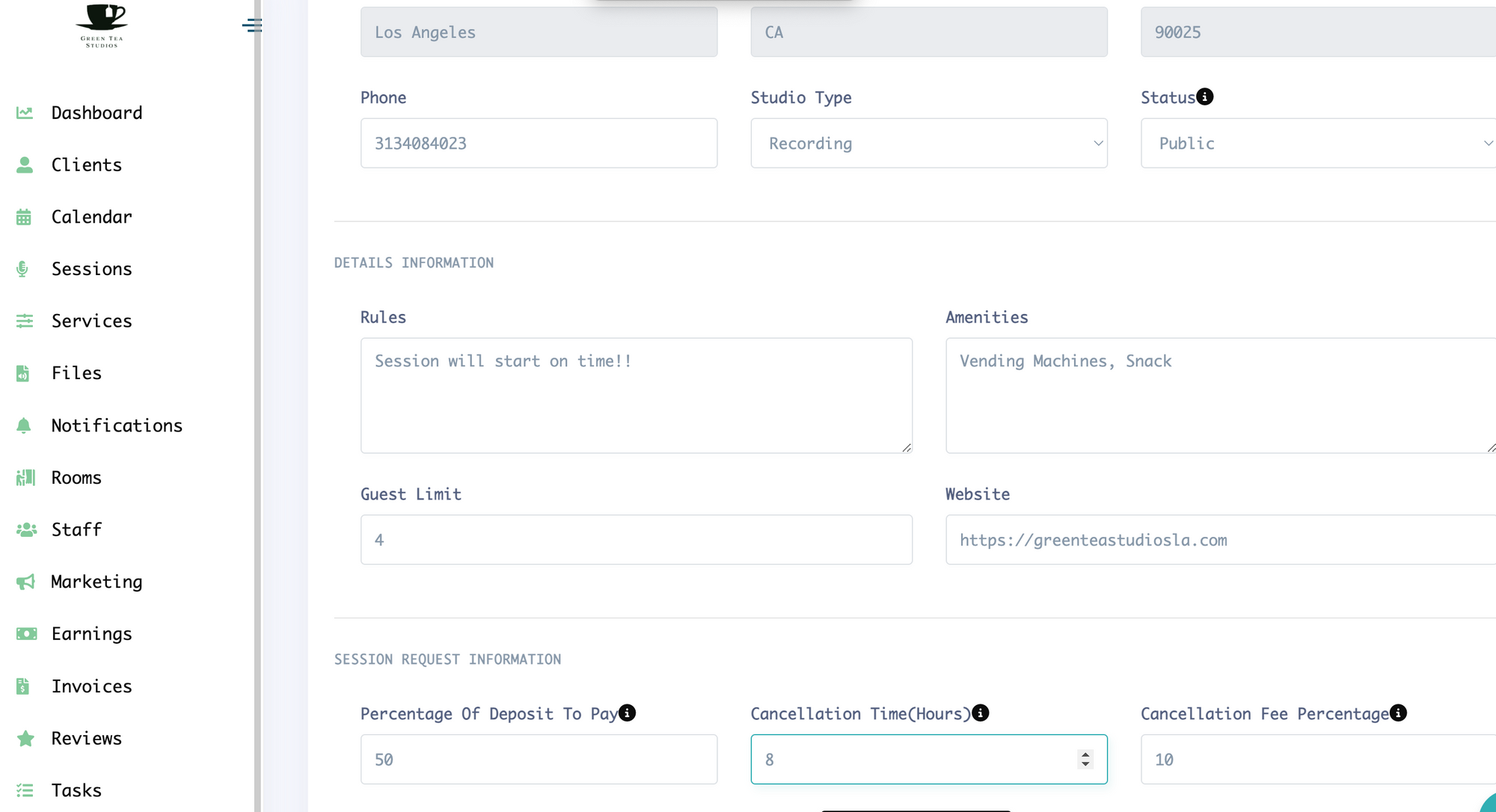Why a Deposit is Necessary for Recording Studio Bookings

In order to make studio bookings more accessible, many new recording studios have adopted a pay-as-you-go model. This means that prospective clients need to make a deposit before they can record their album, video or other professional project.
Recording studios are not businesses that operate at cost; there are fixed operational costs that must be recouped. These include the rent on the premises, utilities and maintenance of equipment as well as payment of licensing fees for any software used in the collaborative process.
This article explains why deposits are necessary for recording studio bookings, what different types of deposits exist, and tips on how you can successfully implement this policy at your recording studio.
Why a Deposit is Necessary for Recording Studio Bookings
Freelancers have to deal with risk as part of their business model. Professionals who work from home are frequently hired to do specific jobs, and they are not paid by their clients until they complete their work satisfactorily. If a client fails to pay the freelancer, the freelancer can go to court to recover their losses.
If you own a recording studio, you are not so much a freelancer as an independent businessperson. You might not even be the person who actually records your clients’ music. In any case, you are responsible for ensuring that your clients are paid on time, that they complete their work as contracted, and that they do not breach any contractual obligations.
You assume all of the risks inherent in doing business, including the chance that a client might refuse to pay you. A deposit is an effective way to manage these risks.
Types of Deposit
A deposit is money that a client pays upfront in order to confirm an appointment or a studio booking. There are many different types of deposits, each of which is designed to protect the booking party.
Let’s look at a few of the most common forms of deposits below:
Reservation Deposit: This is a deposit that you charge if you’re accepting reservations for a specific date or time. In your booking policy, you can state that the reservation deposit will be applied against the full cost of the booked session. If you have a reservation-based studio and you accept reservations, you will likely accept a reservation deposit as well.
Booking Deposit: A booking deposit is an amount that you require of your clients to book a studio session. The booking deposit is essentially the same thing as a reservation deposit, except that clients use it to book a specific time slot.
Retainer: A retainer is an advance payment you receive from your clients to ensure that they have sufficient funds to pay for their studio session. A retainer may be applied toward the cost of the session or otherwise refunded if the client cancels their booking.
Performance Bond: A performance bond is essentially a retainer that is paid upfront by the clients and is applied against the final cost of the session.

Recording Studio Marketing Benefit of Deposits
While it’s true that deposits reduce the volume of walk-in business, they increase the number of bookings. This is because they give your clients a chance to budget properly for the cost of their project. A deposit also gives you a chance to assess whether a potential client is serious about booking with you.
Simply put, most deposits are non-refundable. This means that a client who books a session with you, then fails to show up, forfeits their deposit. Failure to show up for a session is a common reason for one’s booking to be cancelled.

How to Implement a Deposit Policy in Your Studio
In order to implement a successful deposit policy, you must first understand your clients’ booking behaviour. There are no hard and fast rules for calculating deposits, but there are some general guidelines below that can help you to decide on the appropriate deposit amount for your studio:
Identify your booking behaviour: You must first identify how often your customers book sessions without making a deposit. If walk-in business is the norm, you are likely to lose more bookings if you make a deposit mandatory.
Identify your booking price: You must then make an estimate of your average project cost and multiply this by the percentage of deposits you receive. This will help you to determine the amount of the deposit that you should ask your clients to make.
Consider your client profile: Finally, you must take into account the type of client that you are targeting. As noted above, deposits are most often used to screen out casual walk-in customers. So if your target client is someone who is likely to walk in and book a session on a whim, you should make deposits mandatory. On the other hand, if your client is someone who carefully researches your services ahead of time, you can skip the deposit requirement.

The Bottom Line
There is nothing more frustrating for a recording studio than having a client fail to show up for a session. It’s equally frustrating for the client who has scheduled the session but can’t get her project completed because no one is available to record it.
This is why deposits are necessary for recording studio bookings. They protect both the booking party as well as the business owner. As such, deposits should be mandatory for all studio bookings in order to ensure that all clients are prepared to pay for their sessions in advance. With AudioDope Studio Manager, you can set up your deposit fee and ensure every incoming session request has to pay the mandatory deposit!


